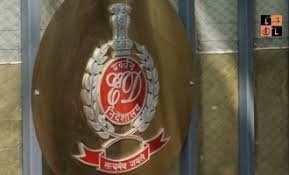
A recent development in the ongoing Punjab National Bank (PNB) fraud case has seen a Delhi court scrutinizing the Enforcement Directorate (ED) for what it termed as a “shoddy probe” and lapses in investigation. The court’s scrutiny resulted in orders for a fresh trial for two accused individuals.
The case in question revolves around a money-laundering scheme that defrauded PNB of ₹1,46,71,000. The court highlighted several key issues with the ED’s investigation:
- Failure to Name Accused: Despite available evidence, the ED did not name two individuals as accused in the case, prompting the court to summon them and initiate a fresh trial.
- Lack of Thorough Investigation: The investigative officer (IO) assigned to the case was criticized for not conducting a comprehensive investigation regarding the money trail associated with the fraud.
- Delay in Filing Charge Sheet: The court noted an unjustified delay of nine years in filing the charge sheet, raising concerns about the efficiency and effectiveness of the investigation process.
Special Judge Mohd. Farrukh, in his order pronounced on March 30 but made available recently, emphasized the need for accountability within the ED. He called for a review of the circumstances and reasons behind the delays and investigative flaws, urging the Department of Enforcement (DoE) to hold responsible officers accountable for any negligence.
The case dates back to December 14, 2009, when the ED registered a case based on a complaint filed by the Central Bureau of Investigation (CBI) on April 6, 2009. The allegations centered on a conspiracy to fabricate and encash cheques, resulting in substantial losses for PNB and its customers.
During the trial, the court convicted two accused individuals, Mukesh Jain and Nipun Bansal. However, it also noted significant oversights in the investigation. Statements from key individuals were not adequately addressed, and steps were not taken to locate and pursue other potentially involved parties.
In response to these shortcomings, the court recommended stricter checks and balances within the ED to ensure investigations are conducted with urgency, diligence, and fairness. It also issued notices to the IO to justify the lapses and summoned additional individuals to face trial separately.
While two accused were acquitted due to lack of evidence, the case highlights broader concerns about the investigative processes and accountability within India’s premier investigating agency.
Sources By Agencies

